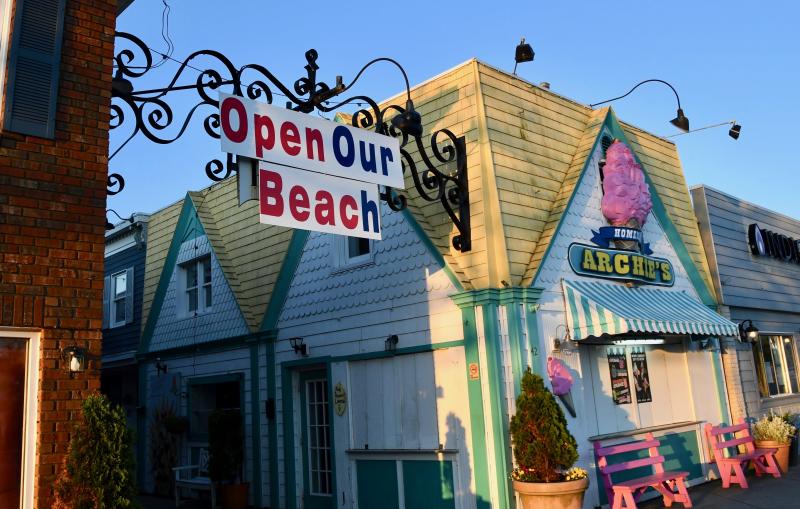Fed banker: Future likely grim for southern Delaware
The economic implications of the coronavirus are largely unknown, but Delaware’s tourism industry is likely to take a significant hit.
“The second-quarter data will be brutally painful,” said Patrick Harker, president and CEO of the Federal Reserve Bank of Philadelphia. “Take your pick of bad, really bad or really, really bad.”
Harker said an optimistic view of the next few months would see the economy largely reopen in June, with technology to contain the spread of the virus and prevent a second wave in the fall.
If that occurs, he said, the economy could see a significant rebound in the second half of 2020.
In a less-optimistic scenario, he said, the economy reopens too quickly, and a significant second wave of the virus occurs.
“Not only would this be a health catastrophe, but it would reverse the economic recovery as well,” he said.
In the long run, Harker said, the economy will recover.
Manufacturers of durable goods should come back quickly, but other industries, such as travel and hospitality, will likely suffer, he said.
“The knock-on effects to airlines, hotels and restaurants that cater to travelers could be severe and long-lasting,” he said.
“That, unfortunately, is bad news for southern Delaware. We’ve already seen in other states, where restrictions are relaxed, that people aren’t showing up in large numbers to restaurants because they don’t feel safe.”
While those fears are understandable, Harker said, “There is a strong possibility that many hotels and restaurants will never reopen. There will probably be retailers, big and small, that also shutter permanently.”
That may be a tough pill to swallow for Sussex County tourism, which contributes an estimated $850 million toward the state tourism industry and employs an estimated 15,000 people. Harker said evidence shows consumers were changing their behavior well before state’s order to stay home.
“Airline bookings were collapsing, and foot traffic into restaurants had already begun a steep decline,” he said. “Consumers were voting with their feet – or at least their wallets.”
A recent poll by the University of Maryland and Washington Post found 56 percent of Americans feel comfortable going to the grocery store, 33 percent are comfortable shopping in retail stores, and just 22 percent would feel comfortable eating at a restaurant.
Harker said an array of indicators shows COVID-19 has had a significant effect on Delaware’s economy and the country as a whole.
In March, nationwide, there was an unprecedented 7.5 percent drop in consumer spending, and April will be worse when the numbers are released, Harker said. Manufacturing output also fell to levels not seen since 2011, he said.
Unemployment has been on the rise nationwide, now sitting at 14.7 percent. In Delaware, most of the recently unemployed have come from accommodations and food services, he said.
Gov. John Carney took the first steps toward reopening May 8, when he allowed more retail businesses to offer curbside pickup and other stores to allow shopping by appointment only. He also permitted hair salons to reopen under strict guidelines, and he set June 1 as the date that Phase 1 of the state’s economic reopening will begin.
On May 8, Carney extended the state of emergency and stay-at-home order until May 31.
Nick Roth is the news editor. He has been with the Cape Gazette since 2012, previously covering town beats in Milton and Lewes. In addition to serving on the editorial board and handling page layout, Nick is responsible for the weekly Delaware History in Photographs feature and enjoys writing stories about the Cape Region’s history. Prior to the Cape Gazette, Nick worked for the Delmarva Media Group, including the Delaware Wave, Delaware Coast Press and Salisbury Daily Times. He also contributed to The News Journal. Originally from Boyertown, Pa., Nick attended Shippensburg University in central Pennsylvania, graduating in 2007 with a bachelor’s degree in journalism. He’s won several MDDC awards during his career for both writing and photography. In his free time, he enjoys golfing, going to the beach with his family and cheering for Philadelphia sports teams.




















































